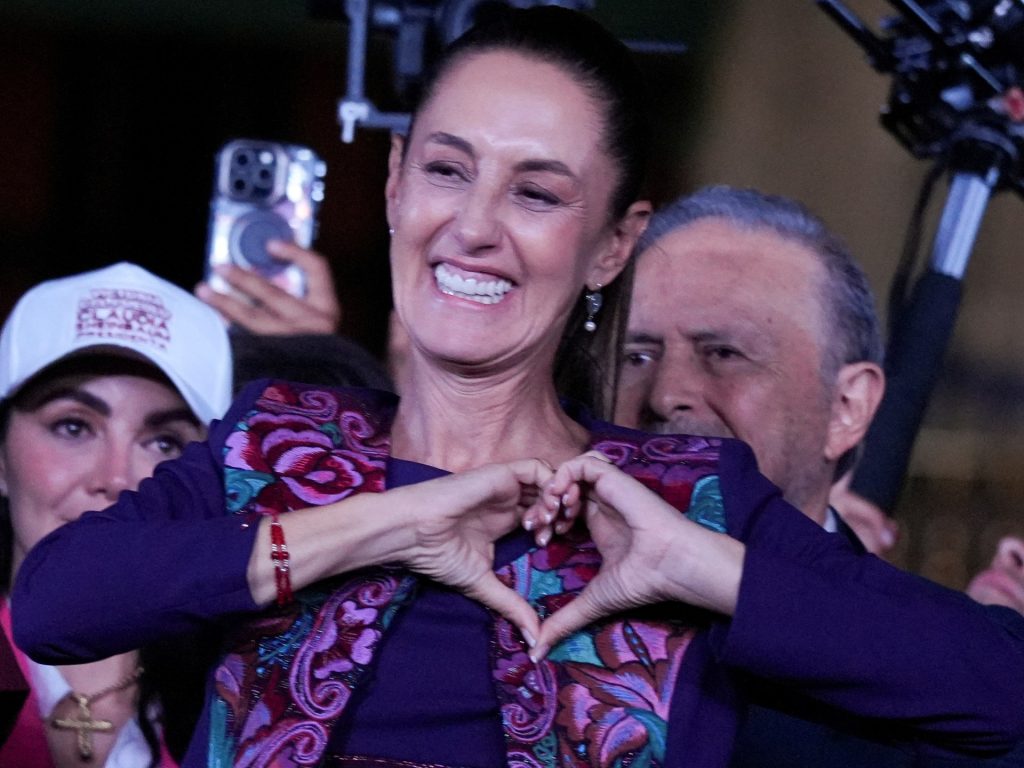Mexico has elected Claudia Sheinbaum, a former mayor of the capital, as the country’s first female president after a heated election on Sunday, with the nation’s top election authority projecting a comfortable win for the 61-year-old physicist-turned-politician. Sheinbaum, a protege of Mexico’s outgoing President Andres Manuel Lopez Obrador, is expected to win more than 58 percent of the national vote, entrenching the governing Morena party’s hold over power in Mexico. The principal opposition candidate, Xochitl Galvez, conceded defeat late on Sunday night, acknowledging the election result and expressing hope that Sheinbaum could resolve the serious problems facing the country.
During her campaign, Sheinbaum faced questions over her close ties to Lopez Obrador, with critics questioning whether she would be able to lead independently. However, both Sheinbaum and Lopez Obrador have insisted that he would hold no influence over her government. Sheinbaum struggled to establish her identity in this campaign while under AMLO’s influence, adhering closely to his policies while trying to assert her individuality. Analysts remain uncertain about what Sheinbaum’s presidency will look like without AMLO in charge, but some believe she may lead with more discipline and planning, with a more technical profile among her cabinet officials.
Sheinbaum grew up in a family deeply engaged in activism, volunteering at a young age to assist groups of mothers searching for their missing children and later joining protests against state intervention in education policies. She earned her PhD in energy engineering at the age of 33 and began her political journey when Lopez Obrador selected her to serve as the leader of his environmental team. Throughout her career, she has actively campaigned for AMLO and held various political positions, including serving as mayor of Tlalpan and Mexico City. Analysts believe she may bring a more disciplined and planned approach to the presidency compared to Lopez Obrador’s more provincial vision.
One of the key challenges facing Sheinbaum as she assumes leadership of Mexico is security issues, with the country experiencing high rates of violence and crime. In recent years, Mexico has seen more than 30,000 murders annually, with many people also unaccounted for. The lead-up to the June 2 election was marked by violence, with 37 candidates killed and hundreds forced to withdraw from the race. During Sheinbaum’s time as Mexico City mayor, the homicide rate fell by 50 percent due to successful security measures that enhanced police operations and collaboration with prosecutors. She has expressed her intention to continue AMLO’s strategy of avoiding confrontation with crime groups while relying on the National Guard for security operations.
At the federal level, Sheinbaum is expected to face challenges related to state capacity in dealing with security issues. Mexico does not have the state capacity to address problems associated with cartels and organized crime groups without the support of the military. Experts believe that the army will continue to be utilized for security operations due to its strength in facing these types of challenges. Moving forward, Sheinbaum will need to address these security concerns while also focusing on other urgent issues facing the country in order to deliver on her commitment to the Mexican people and lead the nation effectively.















